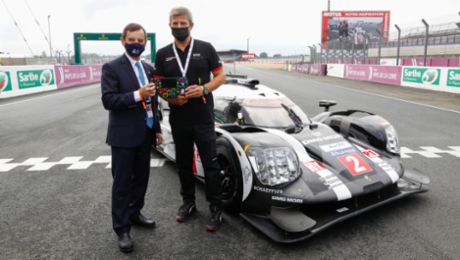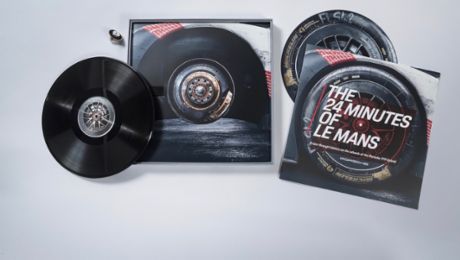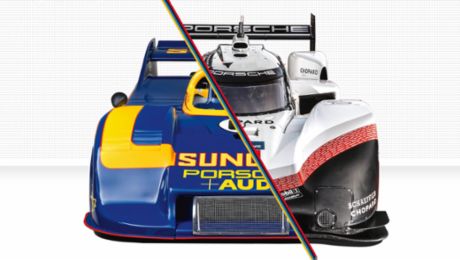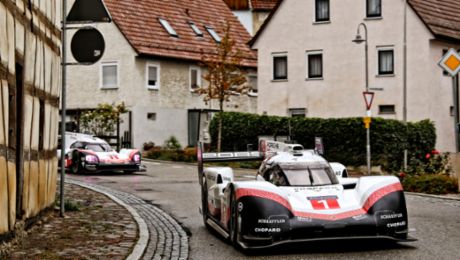"More efficient, more robust"
Wolfgang Hatz, Member of the Executive Board – Research and Development, on the further development of the 919 Hybrid and technology transfer from motorsport to production vehicles.
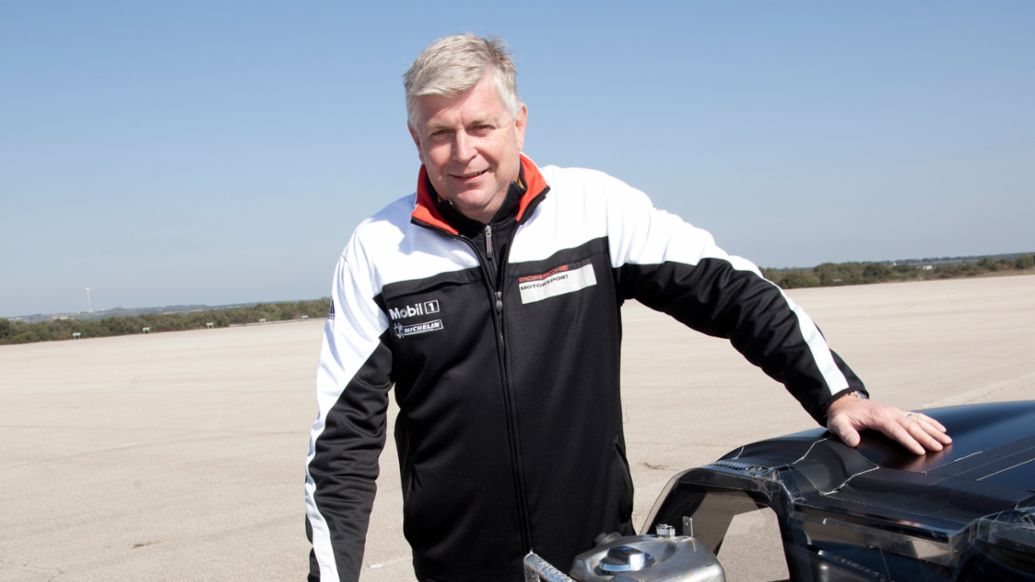
Mr Hatz, last year Porsche returned to the World Endurance Championship with the 919 Hybrid. Has the technical concept stood the test?
Wolfgang Hatz: Yes, and we're proud of that. We have upgraded virtually every detail for the new season, but retained the concept. Being spot-on with the drive concept in 2014 was a fantastic engineering feat. After all, the whole subject was new territory for us.
But there was still development potential?
Of course. Evolution is the technical soul of motorsport, as it were. We already implemented some experience in the 2014 season and continuously refined the hybrid management and the aerodynamics. Some other measures couldn't be realised until 2015.
For example?
The even more powerful hybrid system, the overall vehicle weight reduction and the new suspension first and foremost deserve a mention here. The briefing for the second generation 919 Hybrid was to become even more efficient, even more powerful and yet more forgiving, lighter and at the same time more robust.
And what does WEC participation in the LMP1 category yield for the technical development of production vehicles?
The greatest benefit surely comes from the drivetrain. For example, as regards storage technology, i.e. the battery, the LMP1 programme has taken us to power densities that we are not likely to have experienced otherwise. But this doesn't mean that they can be transferred to production vehicles on a 1:1 basis as the electric range still plays the dominant role there over increased performance. But the incredible performance pressure in this top league teaches us a huge amount in a very short time.
Does that mean that the development work on the 919 Hybrid has concrete results for the further development of electric drive components in production vehicles?
Yes, definitely. A further example of actual technology transferred from the LMP1 project to production vehicles is the combustion technology. The two-litre four-cylinder turbo petrol engine in the 919 Hybrid is the most innovative and efficient downsizing engine ever built by Porsche. In terms of injection technology, this engine is definitely a trailblazer.
Do the engineers working on racing car and production vehicle development only work parallel to one another or is there any direct overlap here?
In the development, calculation and testing work for the LMP1 engine our production engineers provide concrete support to the racing team. Therefore, expertise is created where it is most important for Porsche as a sports car specialist. And with regard to personnel transfer: when our young engineers later switch from motorsport to production vehicle development, they have sound training at turbo speed under their belts.
That leaves the question of targets for the WEC season 2015.
In motorsport and in endurance races in particular you can't stipulate results in the technical specifications. There are quite simply too many unpredictable elements. But our technical goal for our own performance in the WEC is very clear: we want to be capable of winning in 2015. Because when Porsche takes part in Le Mans it is with a certain goal, and not just at a purely emotional level.
